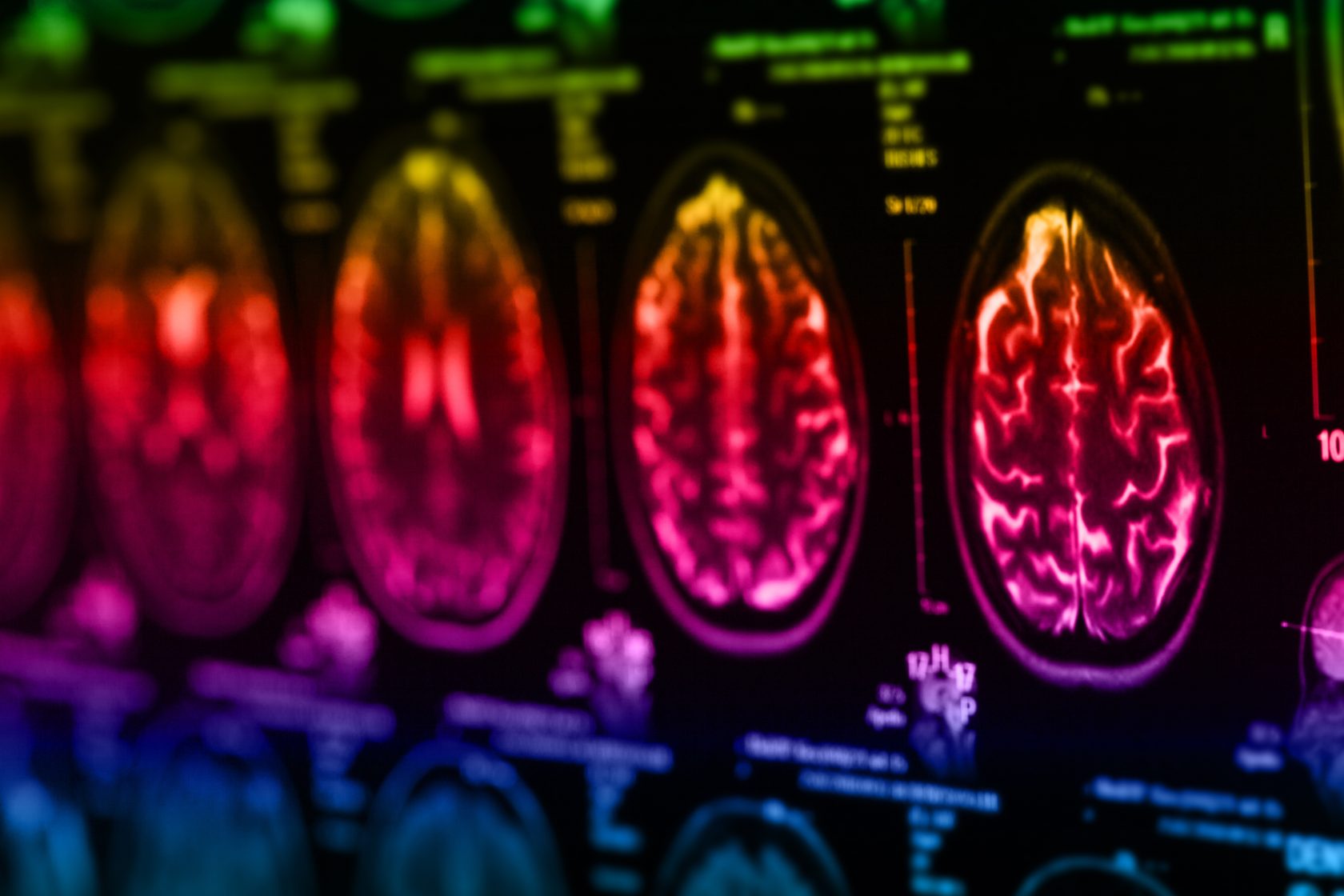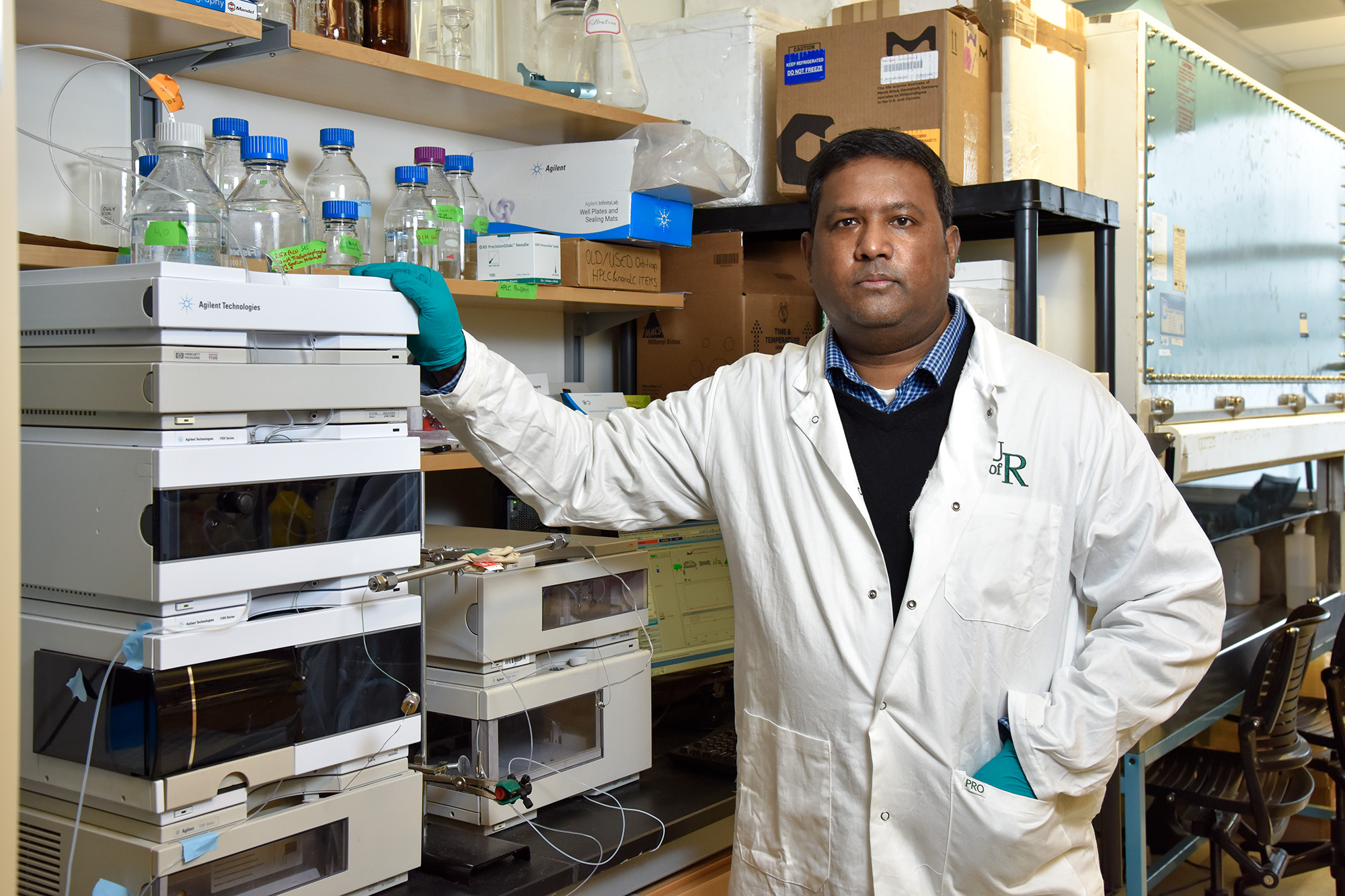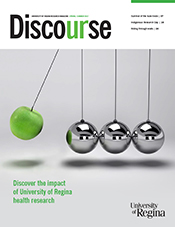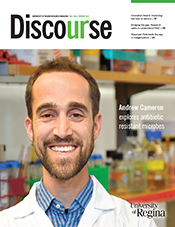
More than 110,000 Canadians live with Parkinson’s disease, a condition that can cause pain, tremors, stiffness, slow movements, and problems with balance, coordination, speech, and memory. It has no cure and takes a heavy toll on a person’s quality of life.
Now, new research involving the University of Regina has uncovered an important clue that could one day help change that.
In a study published in Science Advances, Dr. Mohan Babu, a biochemist and the Chancellor’s Research Chair in Network Biology at the University of Regina, and Dr. Ken Nakamura, a neurologist at the University of California, San Francisco, discovered how a rare genetic mutation can trigger the same damaging chain of events seen in Parkinson’s disease.
Their work focused on mitochondria, the tiny power plants that fuel every cell in the body. In the brain, mitochondria are especially important because they keep nerve cells alive and functioning.
“Our research team created mice with a specific gene mutation known as CHCHD2, and what we saw was striking,” says Babu. “The mitochondria inside the brain cells began to malfunction, leaking harmful molecules called reactive oxygen species. These molecules caused stress inside the cells and eventually led to the buildup of α-synuclein, which is the same sticky protein that forms toxic clumps in the brains of people with Parkinson’s.”

The team also discovered that the mutant protein was no longer interacting with its usual cellular partners, disrupting the mitochondria’s ability to make energy. This stress amplified the buildup of toxic proteins and damaged the brain cells over time, closely mirroring the slow, degenerative changes seen in Parkinson’s disease.
“This discovery is important because it connects two long-standing mysteries: how mitochondrial damage and protein buildup might work together to cause Parkinson’s disease,” says Babu. “It suggests that the root of the problem may lie in how mitochondria and their proteins behave under stress.”
Ko Kurrie, the research funding and partnerships manager with Parkinson Canada, says, “Canada punches above its weight in Parkinson’s research, and discoveries like Dr. Babu’s help unravel the underlying causes of Parkinson's, laying the groundwork for future breakthroughs that could lead to new treatments and potentially new ways to stop or slow down Parkinson's.”
Babu agrees and says that while more research is needed, these findings offer hope. “If we can find ways to protect the cell’s powerhouses and prevent these harmful protein interactions, we may one day be able to slow, stop, or even prevent Parkinson’s disease before it robs the brain of its vital cells.”
Read the full study in Scientific Advances: https://www.science.org/doi/10.1126/sciadv.adu0726.

















